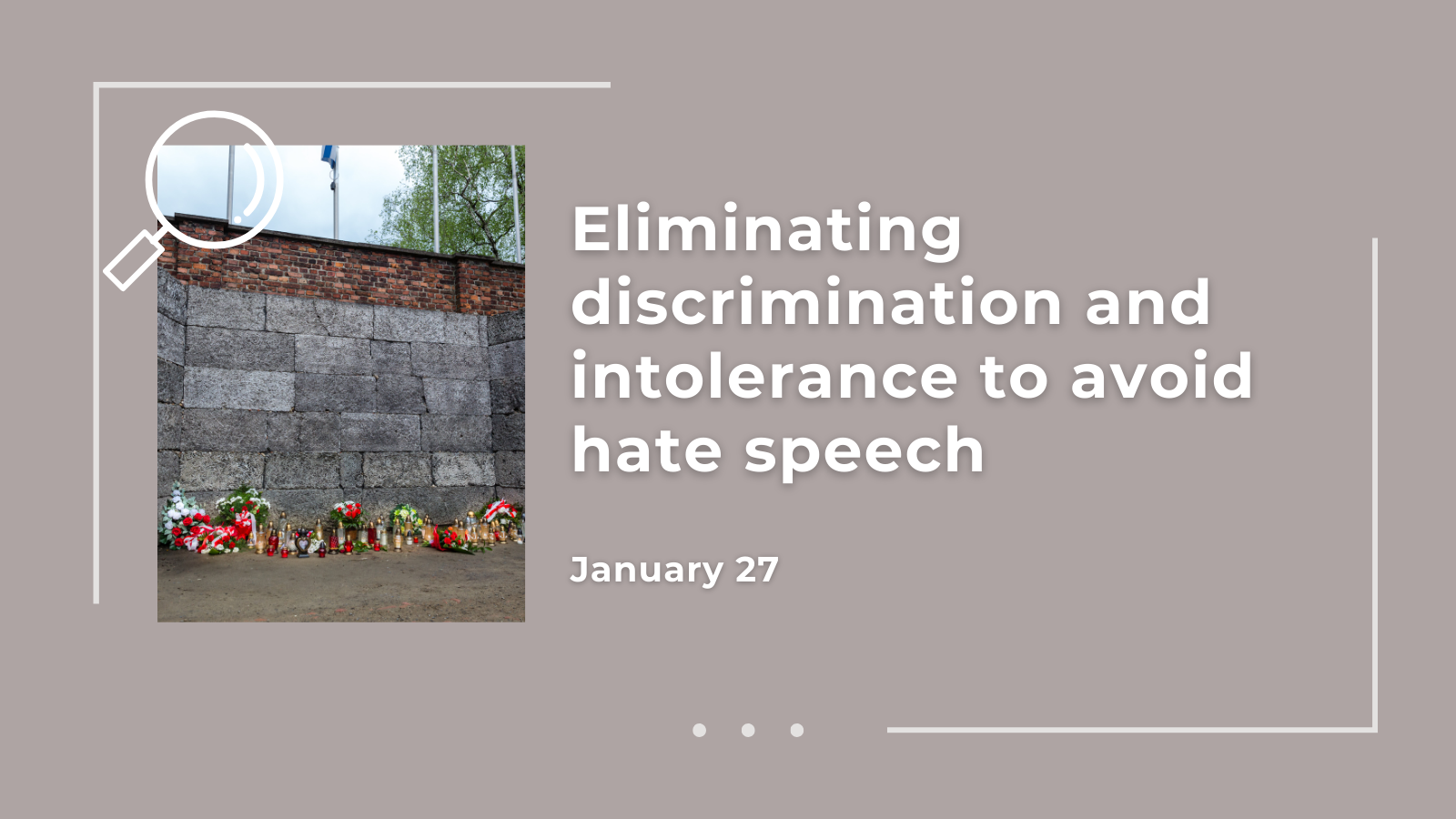
Eliminating discrimination and intolerance to avoid hateful speeches
More than seventy years have passed since the liberation of the German Nazi concentration and extermination camp Auschwitz-Birkenau by Soviet troops, which marked a turning point in the history of humanity. This prompted the United Nations to recognize in 2005, through Resolution 60/7, the annual International Day of Commemoration in memory of the victims of the Holocaust, reflecting on how hatred, fanaticism, racism and prejudice can unleash truly catastrophic situations. One third of the Jewish people and countless members of other minorities were murdered as a result of the Holocaust, making it clear that situations such as these require education and prevention, so that an event of this magnitude will never happen again.
Preventing acts of genocide in the future is the transcendental point which, as human beings, we must seek to foster, fighting against discrimination and intolerance in search of avoiding the incitement of hate speeches that end up propagating ideologies against minorities or various groups professing a religion. Unfortunately, there is religious intolerance, manifestations of violence or harassment against individuals or communities based on their ethnic origin or religious beliefs, which need to be curbed so that hatred does not spread.
Although for many people it may seem impossible or difficult to believe, we find Holocaust denialist movements that seek to cast doubt on its existence in whole or in part, seeking to refute the main mechanisms of destruction, such as the gas chambers, the mass shootings or the torture that led to the murder of six million Jews, including 1.5 million children. It is regrettable that there is this motivation to contradict our historical reality, which manifests itself as an expression of antisemitism, to lessen the impact of the crimes committed during World War II.
Anti-Semitism is the manifestation of acts of discrimination, intolerance or violence against the Jewish people, focusing on religious or racial aspects, as well as referring to the role of Jews in our society. For this, the antisemitic foundations are centered on identifying the Jewish population as descendants of Judas or Satan, or describing them as subhuman beings, the latter being the criterion on which Nazi persecution was based.
Although it may seem that discrimination against Jews is part of a reality alien to our own, it must be taken into account that it threatens the human rights and security of all people, as well as of States. Thus, it is important to understand that hate speech is a threat to democratic values, social stability and peace.
In this sense, for the United Nations, hate speech is any form of communication that manifests itself as an attack or the use of derogatory or discriminatory language in relation to a person or group on the basis of who they are, i.e., taking into account their religion, ethnic origin, nationality, race, color, descent, gender or other identity factor. For international law, the reprehensible conduct is the incitement of hate speech, insofar as it manifests itself through discrimination or violence, which could lead to crimes against humanity.
In order to address this situation, the fight against hate speech by society, with the support of States, is essential in order to deal correctly with expressions of intolerance and discrimination. Global strategies should refer to the recognition of historical facts, such as the Holocaust, with the goal of achieving the protection of its survivors and the promotion of education regarding groups exposed to hate speech.
In conclusion, it is appropriate to recognize anti-Semitism as a threat to the stability of States and societies, emphasizing the need to combat all manifestations of hatred that may arise from this phenomenon, with the aim of ratifying the commitment against anti-Semitism and all forms of intolerance that may lead to violent acts against humanity.
Lessa Verushka Saer Lopez, FIBGAR collaborator.



